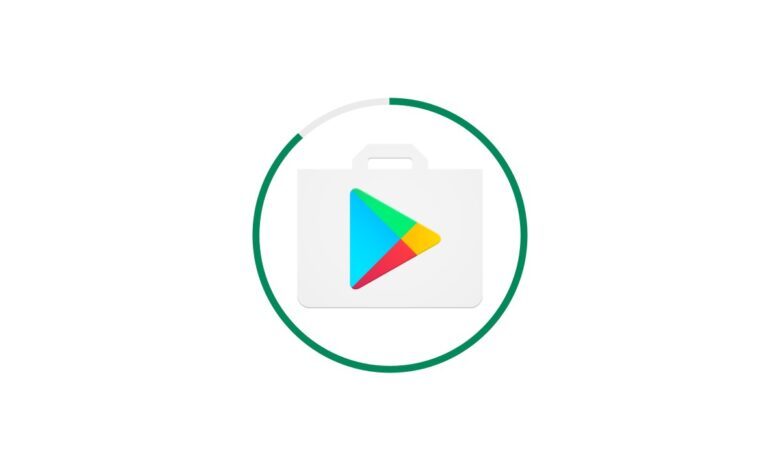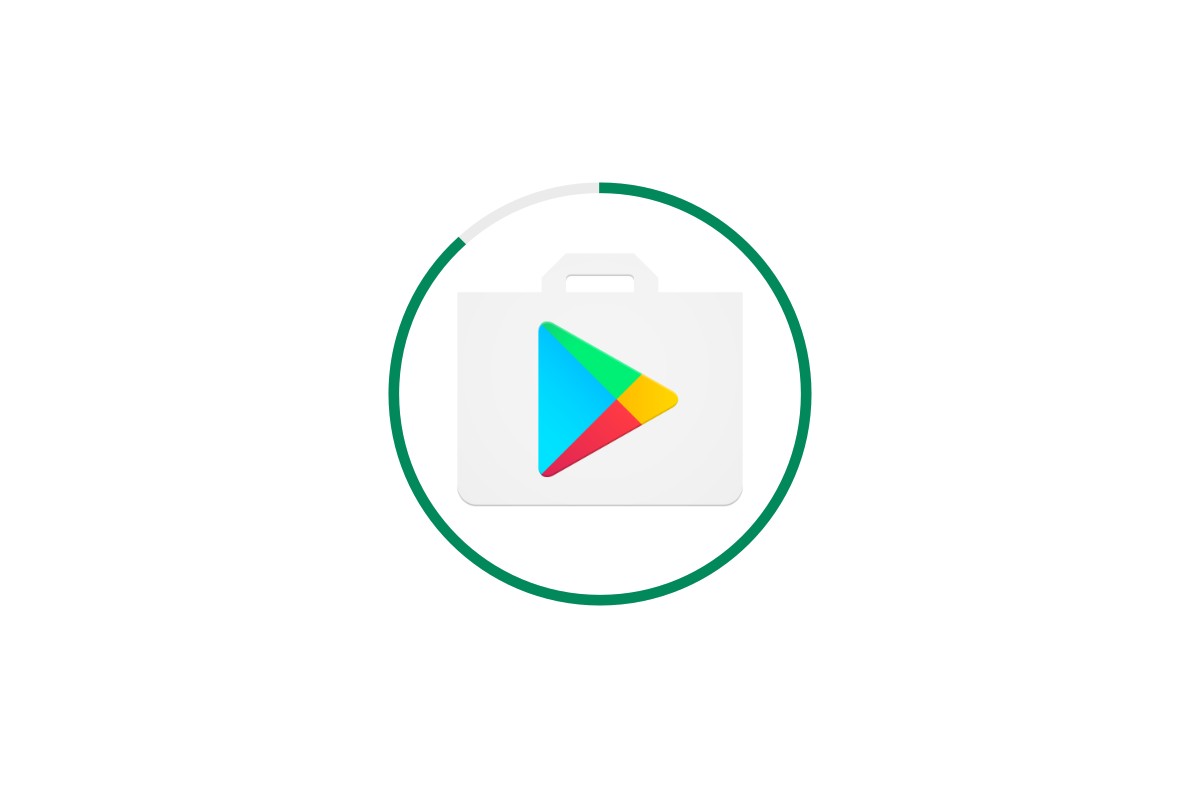
Google Play Users in Russia Cant Download Paid Apps
Google Play users in Russia can no longer update or download paid apps. This recent development has left many users scrambling to find alternative solutions, especially those who rely on paid apps for work, education, or entertainment. The ban has sparked a debate about the impact of international sanctions on the tech industry, the future of the Russian app market, and the broader geopolitical context of this event.
Google’s decision to restrict paid app downloads and updates in Russia was a direct response to the ongoing conflict and the sanctions imposed on the country. The company cited concerns about its ability to conduct business in Russia and ensure the safety of its users as key factors behind the decision.
While Google has provided alternative app stores for Russian users, the long-term implications of this ban on the Russian app market and the broader tech industry remain uncertain.
Impact on Russian Users

The recent ban on Russian users’ ability to update or download paid apps from Google Play has had a significant impact on their digital lives. This restriction has left many users unable to access essential apps for work, education, and entertainment, creating a ripple effect that extends beyond the immediate inconvenience of app updates.
Potential Consequences for Users
The inability to update or download paid apps presents several challenges for Russian users. For professionals who rely on specialized apps for their work, this ban could disrupt their workflow and productivity. Students using educational apps for learning might face difficulties in accessing important learning materials.
Even for casual users who enjoy entertainment apps, the lack of access could lead to a decline in their entertainment options.
Comparison with Similar Restrictions
This situation in Russia echoes similar restrictions imposed in other countries. For example, in 2020, the United States government imposed sanctions on Huawei, limiting the company’s access to Google Play and other services. This move aimed to restrict Huawei’s access to critical technologies, similar to the current situation in Russia.
While the reasons behind these restrictions differ, they highlight the potential impact of government actions on the accessibility of digital services for users.
Google’s Response and Reasoning
Google’s decision to restrict paid app downloads and updates for Russian users has sparked significant debate. This move, announced in early March 2022, was a direct response to the ongoing conflict in Ukraine and the subsequent sanctions imposed on Russia by various countries.Google’s official statement regarding the ban, released on March 10, 2022, cited the need to comply with international sanctions as the primary reason for the restriction.
Reasons for the Restriction
Google’s decision was based on several factors, including:
- Compliance with International Sanctions:Google stated that it was taking action to comply with the sanctions imposed by the United States and its allies on Russia. These sanctions aimed to restrict financial transactions and business operations with Russia, making it difficult for Google to continue its paid app services.
It’s a strange world we live in, isn’t it? One minute, Russian Google Play users are facing restrictions on paid app downloads, and the next, we’re reading about how illegal immigration is down, changing the face of California farms.
It’s a reminder that even in a world of technological upheaval, the fundamentals of human society are constantly in flux. So, while the app store restrictions might be a temporary inconvenience, the changes happening on California farms are shaping the future of agriculture in a way that will have long-lasting consequences.
- Impact on Russian Users:The ban, while intended to comply with sanctions, undoubtedly had a significant impact on Russian users who relied on paid apps for various purposes, including productivity, entertainment, and education. This move significantly restricted their access to digital content and services.
- Financial and Legal Considerations:Google’s decision was likely driven by a combination of financial and legal considerations. Processing payments for paid apps in Russia became increasingly complex due to sanctions, leading to potential legal and financial risks for Google.
Potential Implications on Google’s Business Operations
The ban on paid app downloads and updates in Russia had several potential implications for Google’s business operations:
- Loss of Revenue:Google’s Play Store generated substantial revenue from app sales in Russia. The ban resulted in a loss of this revenue stream, impacting Google’s overall financial performance.
- Reputation Damage:The decision to restrict paid app services could have damaged Google’s reputation in Russia. Some users might have perceived this move as a political stance, potentially leading to negative sentiment towards Google’s brand.
- Market Share Decline:The ban could have led to a decline in Google’s market share in Russia, as users might have turned to alternative app stores or platforms that were not affected by the sanctions.
Alternative App Stores and Solutions
The Russian market is facing a significant shift in how users access and download applications, with Google Play’s limitations creating a need for alternative solutions. This has led to the emergence of various app stores, each offering a unique set of features and benefits.
Alternative App Stores Available to Russian Users
Alternative app stores have emerged as a viable solution for Russian users seeking access to paid applications. These stores provide an alternative distribution channel, offering a range of applications, often including those unavailable on Google Play.
- RuStore: Developed by VK, a prominent Russian social media platform, RuStore is a rapidly growing app store that aims to become the primary alternative to Google Play. It features a diverse selection of apps, including popular social media platforms, messaging apps, and entertainment apps.
It’s a tough time for Google Play users in Russia, with restrictions preventing them from updating or downloading paid apps. Meanwhile, in India, the Vivo X80 series has just launched, offering a range of impressive features and competitive pricing.
Check out all the offers and price variants here to see if this new series is right for you. It’s interesting to see how these contrasting tech situations are playing out across the globe.
RuStore offers a user-friendly interface and integrates seamlessly with VK’s ecosystem.
- NashStore: Another prominent Russian app store, NashStore, boasts a comprehensive collection of applications, including both free and paid options. The store emphasizes its commitment to supporting Russian developers and providing a secure platform for users.
- Aurora Store: Unlike RuStore and NashStore, Aurora Store is an open-source app store that allows users to download and install apps directly from the F-Droid repository. It focuses on privacy and security, offering a platform free from tracking and advertisements.
- AppGallery: Huawei’s AppGallery is a global app store that has gained traction in Russia. It offers a wide selection of apps, including popular international brands, and has been actively expanding its catalog.
- Samsung Galaxy Store: Samsung’s Galaxy Store provides a curated selection of apps specifically designed for Samsung devices. It offers a user-friendly interface and features a wide range of applications, including exclusive Samsung apps.
Pros and Cons of Using Alternative App Stores
Using alternative app stores presents both advantages and disadvantages compared to Google Play.
The news that Google Play users in Russia can no longer update or download paid apps is just another reminder of the volatile landscape we’re living in. It’s a situation that has tech startups scrambling to adapt, and it’s a reminder that even the most established platforms can be affected by geopolitical shifts.
For insights on how to navigate this uncertainty, check out this article on wild times for tech startups making sense of the uncertainty with Madrona’s Tim Porter. It’s a tough time for everyone, but it’s also a time for innovation and resilience.
We’ll see how this situation with Google Play in Russia plays out, but it’s clear that we’re living in a new era of digital disruption.
- Pros:
- Access to Restricted Apps: Alternative app stores often provide access to apps that are unavailable on Google Play, including those that have been removed or restricted due to sanctions.
- Support for Local Developers: Some alternative app stores prioritize supporting Russian developers, offering a platform for local talent to showcase their applications.
- Increased Privacy: Some alternative app stores, like Aurora Store, emphasize user privacy and security, offering a platform free from tracking and advertisements.
- Cons:
- Smaller App Selection: Alternative app stores generally have a smaller selection of apps compared to Google Play, which may limit user choices.
- Potential Security Concerns: Some alternative app stores may not have the same security measures in place as Google Play, which could pose risks to user data.
- Limited Payment Options: Alternative app stores may have limited payment options compared to Google Play, making it difficult for users to purchase paid apps.
Comparison of Key Features
A comparison of key features of different app stores can help users choose the most suitable option.
| App Store | Availability | Security Measures | App Selection |
|---|---|---|---|
| RuStore | Russia | Uses Google Play’s security measures for app vetting | Growing selection, including popular Russian apps |
| NashStore | Russia | Emphasis on security and anti-malware measures | Wide selection of both free and paid apps |
| Aurora Store | Global | Open-source, focusing on user privacy and security | Limited selection, mainly focused on open-source apps |
| AppGallery | Global | Uses Huawei’s own security measures | Large selection, including popular international apps |
| Samsung Galaxy Store | Global | Uses Samsung’s own security measures | Curated selection of apps for Samsung devices |
The Broader Context
The ban on paid app updates and downloads in Russia for Google Play users is not an isolated event. It’s deeply intertwined with the ongoing geopolitical tensions between Russia and the West, primarily fueled by the Russia-Ukraine war. This situation underscores the increasing impact of international sanctions on Russia’s tech sector, which has far-reaching consequences for the Russian app market.
International Sanctions and Russia’s Tech Industry
The Russian invasion of Ukraine in February 2022 triggered a wave of unprecedented sanctions from the West, targeting various sectors, including finance, energy, and technology. These sanctions have significantly impacted Russia’s tech industry, aiming to restrict its access to vital technologies and resources.
For example, companies like Intel, AMD, and Nvidia have halted shipments of microchips to Russia, hindering the development and production of essential tech products. The restrictions on software and services like Google Play are a direct consequence of these sanctions, limiting access to critical technologies and hindering the growth of the Russian app market.
Long-Term Effects on the Russian App Market
The ban on paid app updates and downloads on Google Play could have significant long-term effects on the Russian app market. The most immediate impact is the loss of access to vital updates and security patches for existing apps. This leaves users vulnerable to security threats and limits the ability of developers to introduce new features and improve their apps.
The ban also discourages app developers from investing in the Russian market, as they face uncertainty about the future and potential difficulties in monetizing their apps. This could lead to a decline in the availability of new apps, limiting the choices for Russian users and hindering the growth of the app ecosystem.
Future Implications: Google Play Users In Russia Can No Longer Update Or Download Paid Apps
The ban on paid app downloads and updates for Russian users on Google Play has far-reaching implications for the future of the Russian app market. It could reshape the landscape of app distribution and development in the country, leading to a potential shift towards alternative app stores and local development.
Potential Impact on the Russian App Market
This ban could have a significant impact on the Russian app market. Developers who rely on Google Play for revenue will need to find alternative ways to monetize their apps. This could lead to a decrease in app development activity in Russia, as developers may be discouraged by the lack of a reliable platform for monetization.
- Reduced App Development:Developers may be hesitant to invest time and resources in creating apps for a market where monetization is uncertain. This could lead to a decrease in the number of new apps being released in Russia.
- Shift Towards Alternative App Stores:Users may be forced to turn to alternative app stores, such as the Russian App Store or Huawei AppGallery, to download and update paid apps. This could lead to a fragmented app market, with users scattered across multiple platforms.
- Increased Piracy:The lack of access to paid apps through legitimate channels could lead to an increase in app piracy, as users seek out unofficial sources to download and use apps. This could harm developers and the overall app ecosystem.
Potential for Similar Restrictions in Other Countries, Google play users in russia can no longer update or download paid apps
The ban on Google Play in Russia could set a precedent for similar restrictions being imposed on other countries. Governments around the world may be tempted to use similar tactics to control the flow of information and restrict access to certain apps and services.
- Geopolitical Tensions:Geopolitical tensions between countries could lead to further restrictions on app stores and online services. Governments may use these restrictions as a tool to exert control over their citizens’ access to information and technology.
- National Security Concerns:Governments may cite national security concerns as a justification for imposing restrictions on app stores, arguing that certain apps pose a threat to their national interests.
- Economic Interests:Governments may also impose restrictions to protect domestic app developers and businesses from competition from foreign companies.
Potential Future Development
The situation with Google Play in Russia is evolving rapidly, and it is difficult to predict the exact course of events. However, based on current trends, it is possible to Artikel a potential timeline for the future development of this situation.
- Short-Term:In the short term, Russian users may experience difficulties accessing and updating paid apps. This could lead to an increase in demand for alternative app stores and services.
- Mid-Term:Over the mid-term, the Russian app market could become more fragmented, with users and developers scattered across multiple platforms. This could lead to a decrease in app quality and innovation.
- Long-Term:In the long term, the ban on Google Play could have a lasting impact on the Russian app market. The country may develop its own app ecosystem, with its own app stores and development tools. This could lead to a more closed and isolated app market.
Outcome Summary

The ban on paid app downloads and updates on Google Play in Russia has far-reaching consequences for users, developers, and the tech industry as a whole. The situation highlights the growing tension between geopolitical events and the digital world, raising questions about the future of app distribution and the role of tech companies in global conflicts.
While alternative app stores are available, the uncertainty surrounding the future of the Russian app market and the potential for similar restrictions in other countries creates a complex and evolving landscape for the tech industry.






